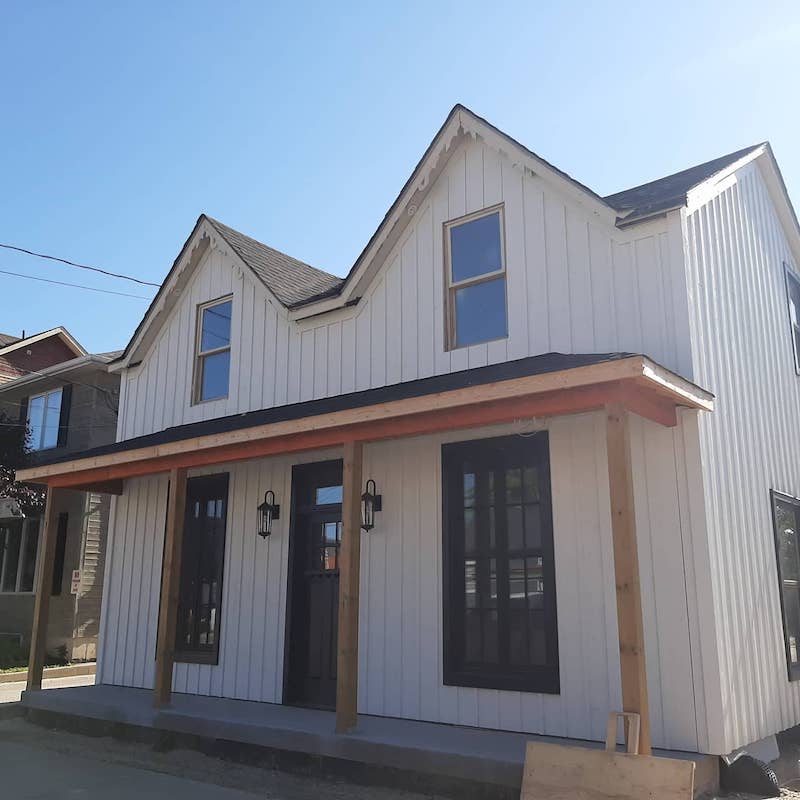Looking for new house siding in Barrie? If so, then you should be taking into account everything that Mother Nature could be throwing its way before you make your materials selections — and keep in mind that Canadian weather isn’t always pleasant. So what are the best siding options to handle the Canadian weather, especially the Canadian winters? We’ll break it all down in this post so you can make the best siding materials decision for you and your home. Here’s a look:
House Siding in Barrie: What You Need to Know
So what are the best options for house siding in Barrie? Here’s a look at some materials that can withstand the Canadian elements (and look great too):
Vinyl
As the most popular choice of siding throughout Canada, vinyl is affordable, attractive and durable — making it an ideal option for withstanding the elements and for enhancing your home’s curb appeal. Vinyl comes in just about any color you could imagine, can be installed vertically or horizontally, and is also a great insulator. What’s more is that it won’t rust, won’t attract pests and it won’t corrode. Once installed, it can last for about 40 years before replacement is necessary.
Wood
Wood siding is another durable option that suits Canadian homes well. In fact, compared to other types of siding, wood panels are up to 25 percent thicker, offering a greater degree of protection. Wood siding is available in many styles and helps form a tight seal against a home to serve as a good insulator. One drawback about wood, however, is that it’s often more expensive to install and typically requires more upkeep to keep it looking great. If wood siding would work with your home style and your budget, however, it’s a high-class, authentic and attractive siding option that can really help your property stand out on the street.
Aluminum
Aluminum and other types of metal siding are often less expensive than vinyl siding and can last for up to 30 years before replacement is necessary. Aluminum siding is also treated so that it won’t rust and it can also serve as a good insulator, helping keep cool air in the home during the hot summer months and preventing warm air from escaping during the cold weather months. Though durable and affordable, there are a few drawbacks to aluminum and other metal sidings. One, they tend to dent easier. And two, they’re often more susceptible to color fading from UV exposure.
Contact Us Today
For more information on the types of siding that can help protect your home and conserve your energy bills, contact us today. We offer free, no-obligation assessments and are happy to consult with you on what type of siding we think would work best with your home. Contact us today to schedule your consultation and get started.

